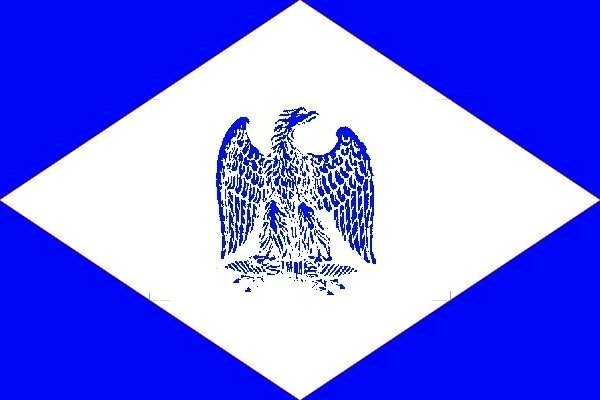
MOUVEMENT BONAPARTISTE – BONAPARTIST MOVEMENT
TOUT POUR ET PAR LE PEUPLE – EVERYTHING FOR AND BY THE PEOPLE
« Pour l’Honneur de la France, pour les intérêts sacrés de l’Humanité – For the Honour of France, for the sacred interests of Humanity »
(Napoléon le Grand, le 17 ventôse an VIII – Samedi 8 mars 1800 – Napoleon the Great, 17th of Ventôse Year VIII – Saturday 8th March 1800)
♔♔♔♔♔♔♔♔♔♔♔♔♔♔♔♔♔♔♔♔♔♔♔♔♔♔
ON NAPOLEONIC IDEAS
BY
NAPOLEON III, EMPEROR OF THE FRENCH
Translated from the French
by Paul-Napoléon Calland, President of the Bonapartist Movement, and published in French and English in honour of the two hundred and fiftieth anniversary of the birth of Napoleon the Great, on the Fifteenth of August, 2019.
Traduit du français par Paul-Napoléon Calland, Président du Mouvement Bonapartiste, et publié en français et en anglais en l’honneur du 250e anniversaire de Napoléon le Grand, le 15 août 2019.
CHAPTER III : INTERNAL MATTERS / QUESTION INTÉRIEURE
HOW WE SHOULD JUDGE NAPOLEON
The eulogy of the Emperor is in the facts; it suffices to leaf through the pages of the Moniteur. His glory is like the sun; he is blind who does not see it. Petty detractors will not change the undeniable influence of evident acts; a few drops of ink scattered into the sea cannot alter the colour of its waters. However, as there are little minds who cannot understand what is great, and as, in times of transition, party spirit disfigures the outlines of History, it is not useless to remind the masses, who have such admiration for the Emperor, that their veneration is not based upon the misleading shininess of a vain glory, but on the correct understanding of actions whose aim was the welfare of humanity.
And if, in the heavenly abode, where his great soul now reposes, Napoleon could still concern himself with the agitation and judgements that confront one another here below, would not his spirit, irritated by his accusers, have the right to reply : “All that I have done for the internal prosperity of France, I had only the interval between battles in which to accomplish it. But you, who criticise me, what have you done during twenty-four years of profound peace?
“Have you appeased discords, reunited the parties around the altar of the country? Have you gained, for the different branches of the State, the moral preponderance that the law affords them, and which is a guarantee of stability?
Have you given your Chamber of Peers the democratic organisation of my Senate?
Have you conserved, for the Council of State, its salvatory influence and employment in good works?
Have you conserved the institution of the Legion of Honour in the purity and the prestige of its founding organisation?
Have you given your electoral system the democratic base of my cantonal assemblies?
Have you eased the access to the chamber of representatives, by ensuring the payment of its members?
Have you, like me, rewarded all merits, repressed corruption and introduced in administration this severe and pure morality that renders authority respectable?
Have you caused the influence of power to serve the improvement of morals? Crimes, instead of diminishing, have they not followed a growing progression?
Have you ensured property [for its owners] by completing the work on the cadastral survey?
Have you, like me, made one hundred new industries to rise out of the ground?
Have you completed, during a long peace, half of the public works that I had begun during cruel wars?
Have you opened new outlets for commerce?
Have you improved the condition of the poorer classes?
Have you employed all the revenues of France in the sole aim of her prosperity?
Have you re-established the law on divorce, which guaranteed the morality of families?
Have you organised the National Guard in such a way that it is an invincible barrier against invasion?
Have you contained the clergy in its religious functions, far from political power?
Have you conserved, for the Army, that consideration and popularity which it had so rightly acquired? The noble mission of the soldier, have you not sought to tarnish it?
Have you restituted to our poor remains of Waterloo the little bread that was theirs as the price of the blood that they had shed for France?
The tricolor flag, the name of the French people, have they conserved that prestige and influence that made them respected by all the universe?
Have you ensured for France, allies upon whom she may count on the day of danger?
Have you diminished the loads of the people? Your taxes, are they not, on the contrary, higher than my war time taxes?
Lastly, have you weakened that administrative centralisation that I had established only to organise the interior, and resist the invaders?
No; you have kept of my reign all that was temporary, made of momentary obligations; and all the disadvantages of war, you have conserved, without its immense compensations, the honour and glory of the country!










Ping : DES IDÉES NAPOLÉONIENNES (CHAPITRES) – ON NAPOLEONIC IDEAS (CHAPTERS) | Mouvement Bonapartiste